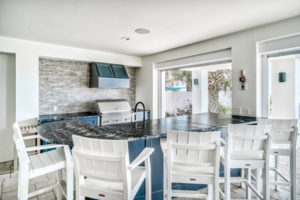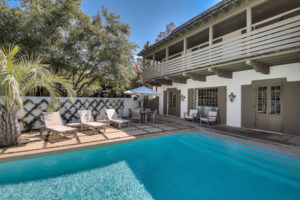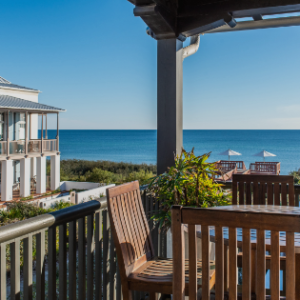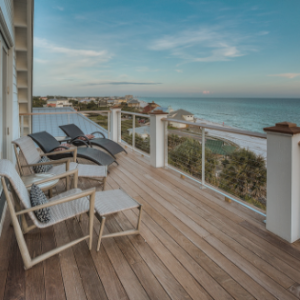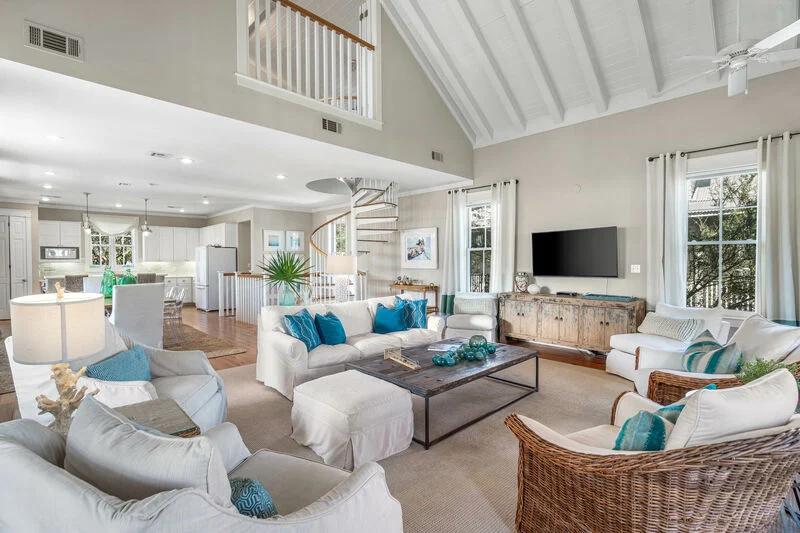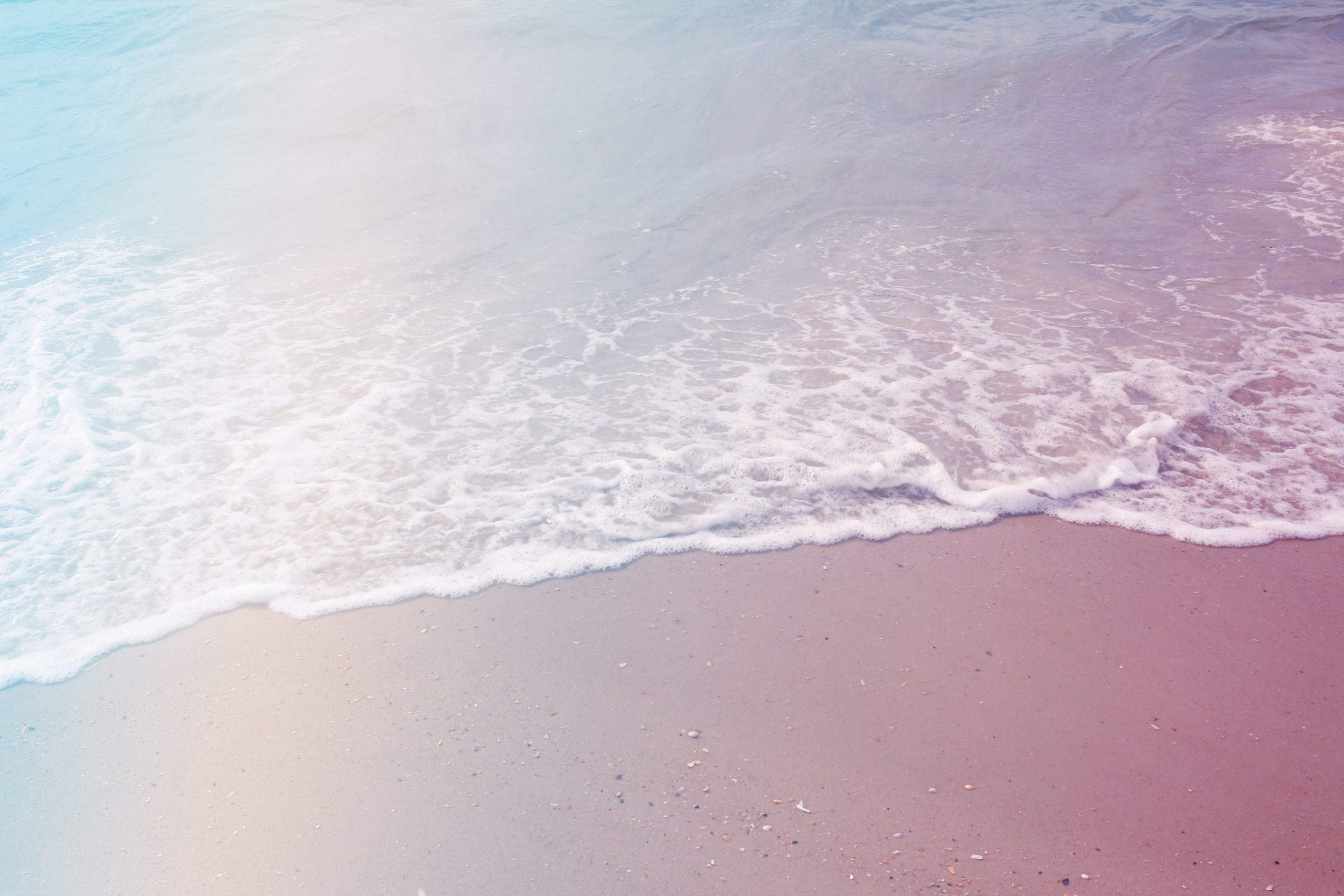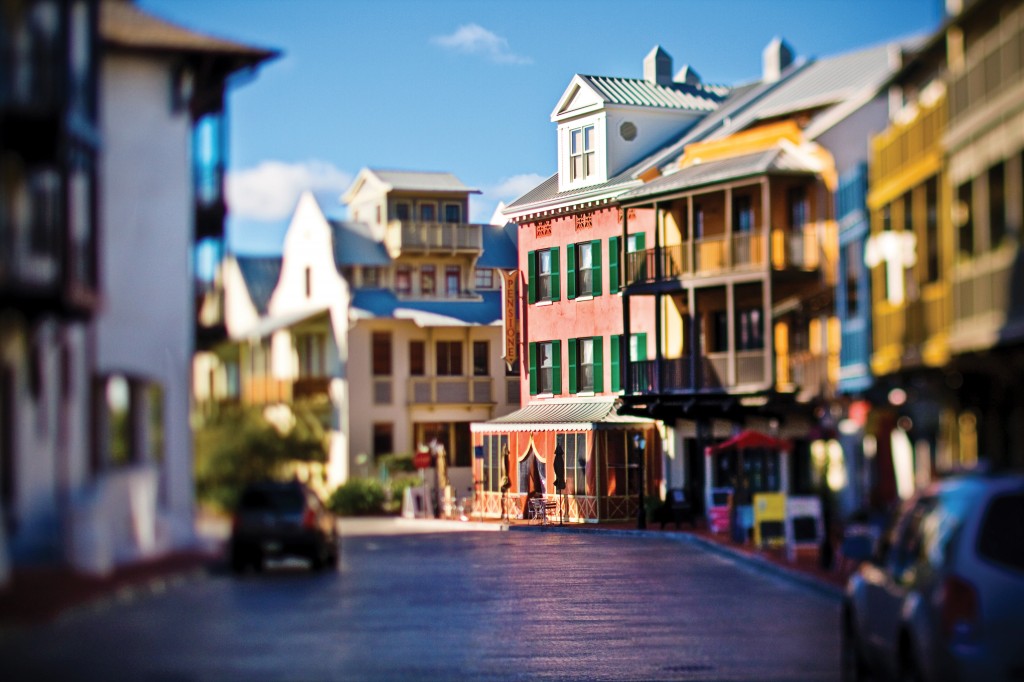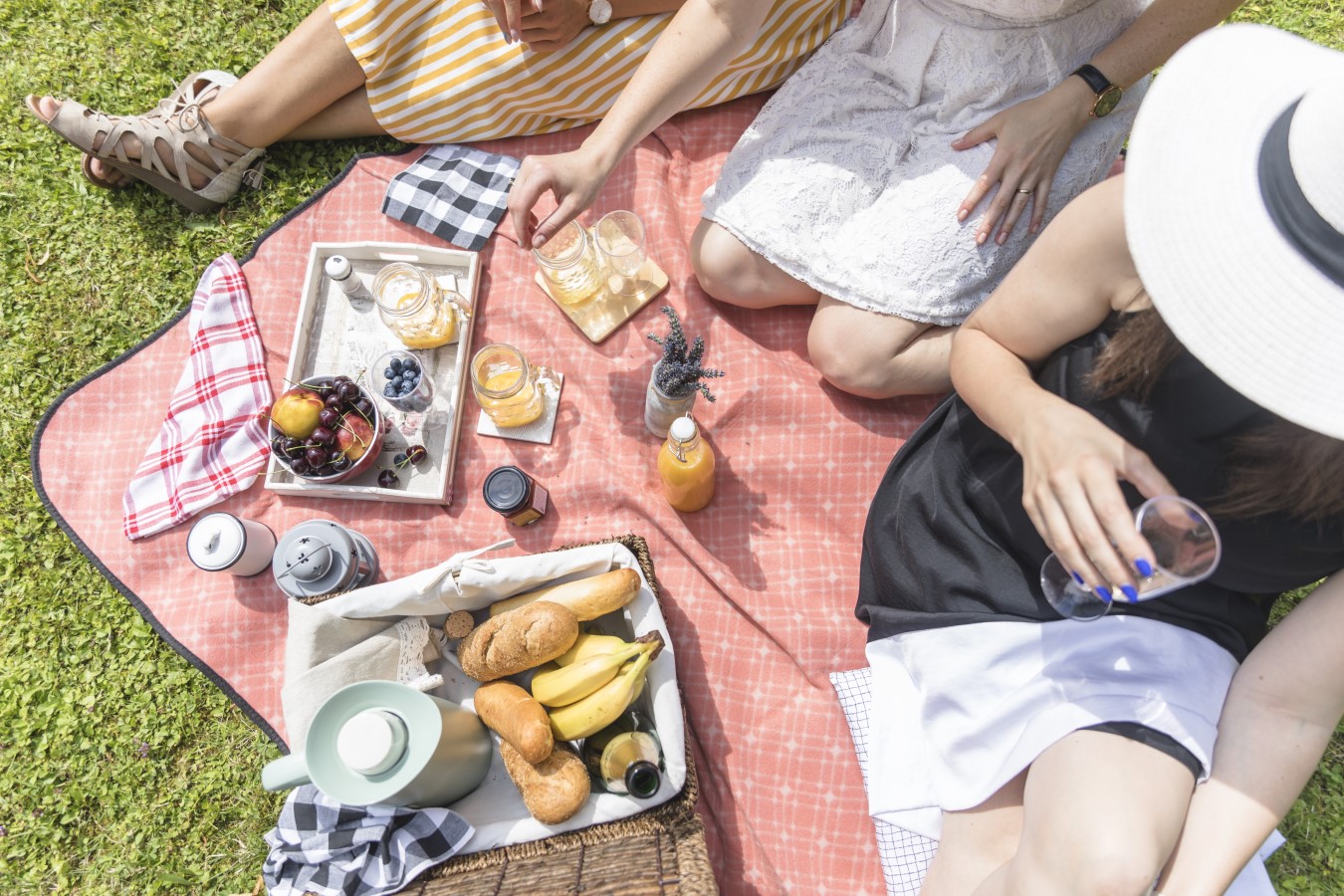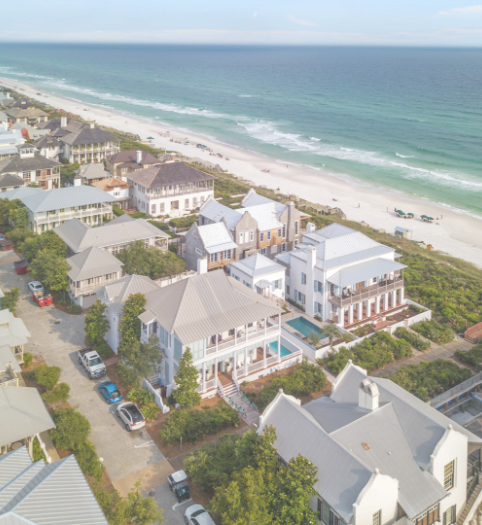With consumer interest in “green” living at an all-time high, Rosemary Beach, the neo-traditional neighborhood on northwest Florida’s Gulf Coast, has become a perfect case study in incorporating “green” concepts into the design and function of a community. The numerous aspects of the “green” lifestyle that Rosemary Beach supports are a great way for visitors to incorporate sustainable techniques into their homes, communities and lifestyles—including their vacation choices. In Rosemary Beach, you can enjoy a eco-friendly vacation.
The winding, narrow streets are lined by scrub oaks, which were planted along the edge of the pavement and branch out into the roadways forcing the flow of traffic to slow down. As a means of transportation, Rosemary Beach encourages residents and visitors to walk or ride their bikes along the various footpaths and boardwalks to the Town Center, beach, pools, restaurants and shops. Now, that’s a way to lower emissions!
Rosemary Beach also has progressive landscape codes, which designate the use of native plant life to provide habitat for native wildlife. As an added benefit, the native plantings provide root systems that are supportive to the sandy foundation and dune lines, which ultimately provide a natural level of protection against erosion and storm damage. These plants also are low-maintenance and naturally-occurring, and do not require the use of fertilizers or additional watering.
Rosemary Beach also made a commitment to protect the environment by not building beyond the coastal construction control line, or buffer zone, landward of the beach. In keeping with that commitment, nine dune walkovers have been built providing both residents and guests beach access. These walkovers protect the fragile dune system and prevent erosion and washout during storms and are unobtrusive, simple and functional.
Common green areas located throughout the town provide a great place for picnicking, reading a good book, playing an impromptu game of croquet or simply enjoying quality down time for couples, families or friends. These green spaces are professionally maintained with a non-toxic fertilization process. An elaborate butterfly garden is located at West Kingston Road, in the northwest corner of the Rosemary Beach community. This garden was conceived as a display garden that would emphasize the significance of the native landscape. A wooden walkway weaves through colorful plantings that lure butterflies.
Restaurants located throughout Rosemary Beach are also doing their part in going “green.” Amavida Coffee, a Certified B Corporation, runs on the motto “Love for Life” and produces locally roasted, 100 percent natural Fair Trade Certified coffee. Restaurant Paradis uses locally grown products and fresh Gulf seafood, which allows for the menus to change with the seasons. Paradis has become an eco-friendly restaurant by producing its own sparkling and still waters—filtered to 0.5 microns, which allows for trace minerals to remain—and serving the water in signature blue, reusable, glass bottles. The restaurant also uses compostable carry-out containers. Summer Kitchen Café uses sustainable products for its to-go boxes, soda cups, coffee cups, menus, to-go bags and trash bags. Summer Kitchen Café also uses eco-friendly suppliers for its poultry, eggs, beef and paper products.
The closest airport for those traveling to Rosemary Beach is the brand-new Northwest Florida Beaches International Airport, considered to be the nation’s “greenest airport.” Constructed with sustainable materials, the airport also features a landscape design that does not require supplemental irrigation and is home to the nation’s first LEED Certified airport terminal. In addition to its “green construction,” the Northwest Florida Beaches International Airport protects 41,000 environmentally sensitive acres, including 33 miles of the West Bay shoreline and 44 miles of creek and tributaries. The airport also protects a large conservation area of pine flatwoods and wetlands, home to snowy egrets, blue herons, Florida black bears, gopher tortoises and pitcher plants.
For those who desire a vacation experience that embraces “green” living practices, look no further than Rosemary Beach.



